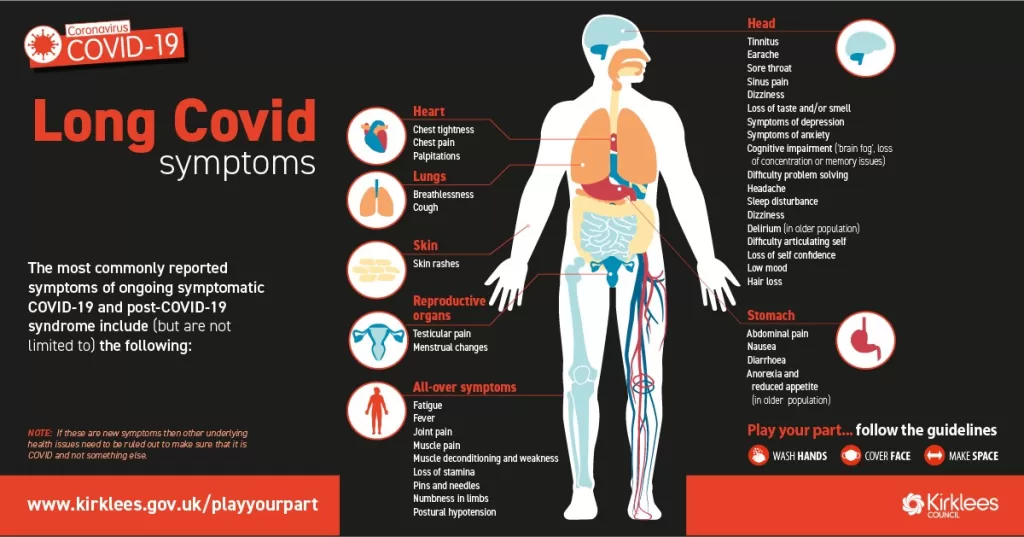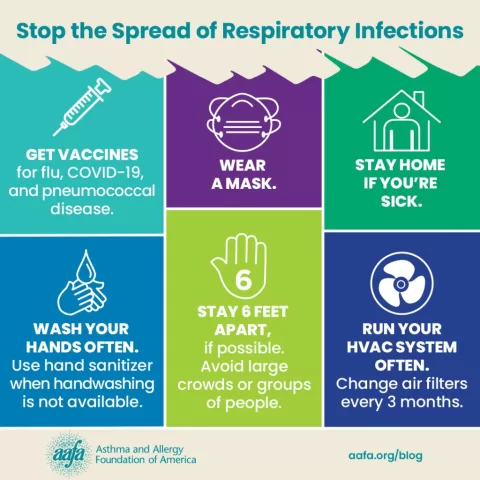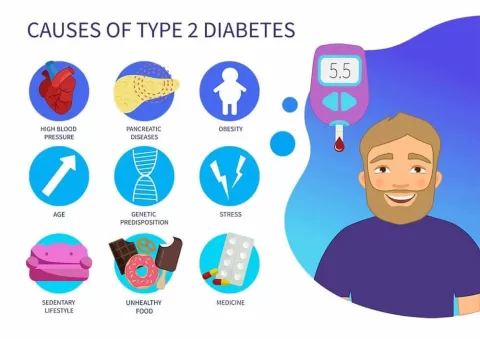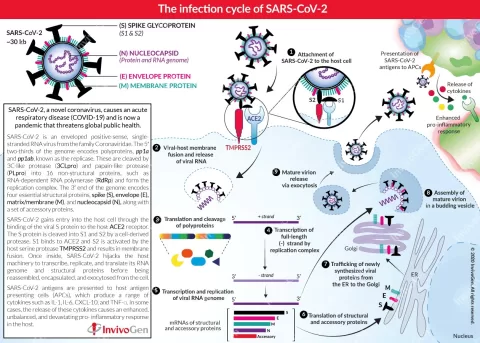The experience of long COVID can profoundly alter the lives of those affected, with lingering symptoms that persist long after the initial infection has resolved. Many individuals face ongoing challenges such as chronic fatigue, debilitating headaches, and mood dysregulation, which can make everyday tasks feel insurmountable. As the healthcare system grapples with the impact of long COVID, the search for effective long COVID treatment remains challenging, leaving many patients feeling lost and unheard. Access to specialized care, such as long COVID clinics, has become increasingly difficult as awareness diminishes, further exacerbating the struggles faced by patients. Understanding the impact of long COVID is crucial, as millions navigate chronic COVID symptoms that can have devastating effects on their quality of life.
Living with post-viral syndrome, often termed long COVID, presents numerous challenges that extend beyond mere physical discomfort. This complex condition manifests in various ways, including persistent fatigue, brain fog, and emotional dysregulation, making daily functioning a Herculean task for many survivors. The void in effective chronic illness management continues to grow as healthcare access dwindles, with findings revealing that many clinics catering to those affected remain understaffed or have closed altogether. Furthermore, patient experiences illustrate the undeniable need for increased awareness and resources surrounding healthcare access for long COVID sufferers. As the medical community strives to understand and treat this evolving epidemic, addressing the concerns of those with ongoing post-COVID conditions has never been more critical.
Understanding the Long COVID Experience
Long COVID is a term that encompasses a wide range of health conditions that persist long after the initial coronavirus infection has cleared. Those experiencing long COVID often report symptoms such as chronic fatigue, cognitive dysfunction, and respiratory issues that can extend for months or even years. For many, the journey to recovery is fraught with challenges, as the impacts can affect nearly every organ system, significantly disrupting daily life. Studies indicate that a considerable percentage of individuals report ongoing health issues, which may be attributed to lingering inflammation, microvascular damage, or organ dysfunction.
Understanding what it feels like to live with long COVID goes beyond just medical jargon; it encapsulates the emotional and psychological toll it takes on individuals. As seen in personal accounts, many patients face not only physical symptoms but also feelings of isolation, anxiety, and frustration with an often unresponsive healthcare system. Navigating the maze of appointments, treatments, and misdiagnoses can further exacerbate the distress, creating a daunting reality for those still grappling with the aftereffects of the virus.
Frequently Asked Questions
What are the common symptoms of long COVID experience?
Long COVID experience often includes chronic COVID symptoms that can persist for weeks or months after the initial infection. Common symptoms reported by patients include severe fatigue, cognitive difficulties (often referred to as ‘brain fog’), headaches, muscle and joint pain, sleep disturbances, and mood disorders. These symptoms can significantly impact daily activities and quality of life.
How does long COVID treatment vary among clinics?
The long COVID treatment offered at clinics can vary widely. Some long COVID clinics provide comprehensive care with multidisciplinary teams, focusing on holistic recovery, while others may offer limited services targeting specific chronic COVID symptoms. Patients may encounter long wait times and varying levels of expertise among healthcare providers.
What is the impact of long COVID on daily life?
The impact of long COVID can be profound, affecting various aspects of daily life including the ability to work, engage in social activities, and perform routine tasks. Many individuals report significant disruptions in physical capabilities and cognitive function, leading to increased reliance on support systems and adaptations in lifestyle.
What challenges do patients face regarding healthcare access for long COVID?
Healthcare access for long COVID patients is often hindered by a lack of specialized long COVID clinics, inadequate knowledge among healthcare providers, and insurance coverage issues. Many patients struggle to find appropriate care, as clinics may have closed or stopped accepting new patients, exacerbating feelings of isolation and neglect.
Are there specific clinics dedicated to long COVID treatment?
Yes, there are long COVID clinics established to specifically address the treatment of chronic COVID symptoms. However, the availability of these clinics varies by region, and some areas lack accessible options. It’s important for patients to research local resources and may need to travel to seek specialized care.
Why do many long COVID patients encounter disbelief from medical professionals?
Many long COVID patients report experiencing disbelief from medical professionals due to the complexity and variability of the condition. A lack of standardized diagnostic criteria and limited awareness about long COVID treatment contributes to the struggle for validation, making it challenging for patients to receive appropriate care.
How can someone find effective long COVID treatment options?
To find effective long COVID treatment options, patients are encouraged to explore local long COVID clinics, consult with specialized healthcare practitioners, and join support groups for recommendations from fellow patients. Online resources and advocacy groups can also provide valuable information on navigating the healthcare system.
What should patients know about the future of long COVID research and healthcare?
As long COVID is still being studied, there is hope for improved healthcare access and treatment options in the future. Ongoing research may lead to better understanding and management of chronic COVID symptoms, but patients must continue to advocate for their needs within a healthcare system that is still catching up with the evolving impacts of COVID-19.
| Key Point | Details |
|---|---|
| Long COVID Symptoms | Long COVID presents a complex range of symptoms affecting multiple organ systems, often including headaches, mood dysregulation, and chronic fatigue. |
| Healthcare Struggles | Access to effective treatment for long COVID is limited. Many doctors lack knowledge about diagnosis and treatment, leading to inadequate care. |
| Clinic Accessibility | Numerous long-COVID clinics have closed or do not accept new patients, complicating access for those who need care. |
| Patient Experiences | Patients often face emotional distress, medical indifference, and significant barriers, including wait times and insurance issues. |
| Government Response | Recent cuts to federal programs supporting long COVID research signal a lack of sustained attention and resources for affected individuals. |
Summary
The long COVID experience is profoundly challenging, highlighting the ongoing struggles of individuals dealing with the aftermath of COVID-19, even as society largely moves on. Many patients find themselves battling not only persistent physical symptoms but also a complicated and often indifferent healthcare system. As awareness fades, access to necessary care becomes more limited, pushing many into further isolation and despair. Those affected by long COVID deserve our attention and support as they navigate this difficult journey.
The content provided on this blog (e.g., symptom descriptions, health tips, or general advice) is for informational purposes only and is not a substitute for professional medical advice, diagnosis, or treatment. Always seek the guidance of your physician or other qualified healthcare provider with any questions you may have regarding a medical condition. Never disregard professional medical advice or delay seeking it because of something you have read on this website. If you believe you may have a medical emergency, call your doctor or emergency services immediately. Reliance on any information provided by this blog is solely at your own risk.








